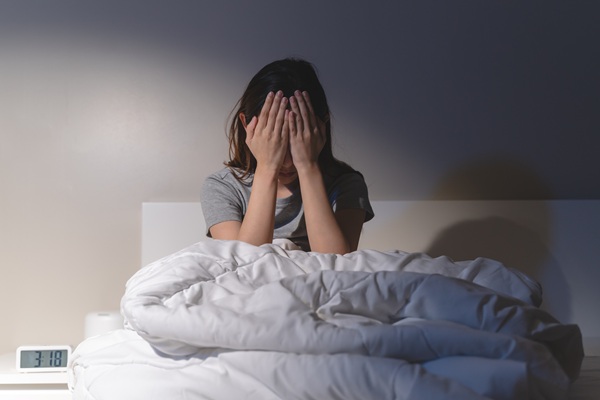Treatment from a Psychiatrist for Anxiety Disorders

Anxiety disorders affect millions of Americans of all ages each year. The good news is there are effective treatment options available for patients who are battling symptoms of an anxiety disorder. This review discusses the types of treatments a psychiatrist may offer for anxiety disorder and the benefits each treatment option provides.
How a psychiatrist can treat anxiety disorders
Several common treatment methods a psychiatrist may utilize with patients that have an anxiety disorder include psychotherapy, anti-anxiety medication, lifestyle changes, support groups, dietary changes, and an improved sleep schedule. The following is a closer look at each treatment method and how each one works.
Psychotherapy
Psychotherapy is a relatively broad treatment term that includes a range of possible services. Among the most notable types of psychotherapy that are utilized for patients who have anxiety disorder are:
- Cognitive-behavioral therapy (CBT)
- Family therapy
- Interpersonal psychotherapy
- Dialectical behavioral therapy
Cognitive-behavioral therapy is the most common type of psychotherapy for anxiety disorders. It involves teaching skills to improve symptoms and avoid anxiety during daily life. It may involve exposing the patient to triggers gradually and allowing them to build a tolerance for them to reduce the anxiety that is experienced by the trigger.
Medication
There are also medications available for anxiety disorders. They may be utilized as the primary treatment method or along with cognitive behavioral therapy and other forms of psychotherapy. The most common types of effective medications for anxiety disorders include:
- Anti-anxiety medication
- Antidepressants
- Beta-blockers
- Sedatives
Certain stronger medications such as beta-blockers and sedatives are typically only used on a short-term basis and are rarely prescribed. However, antidepressants and anti-anxiety medications are more commonly prescribed for long-term use for patients that are diagnosed with an anxiety disorder.
Lifestyle changes
Patients with an anxiety disorder typically have triggers that may lead to the anxiety becoming worse. It is important not to avoid these triggers altogether but to instead learn how to be around possible triggers and not feel as anxious. Therefore, treatment may involve lifestyle changes to help the patient slowly adjust to situations that may have in the past led to severe anxiety.
Anxiety support groups
Support groups are a type of psychotherapy in which individuals who have an anxiety disorder can gather together to discuss their experiences and situations and share helpful insights. Many patients find useful coping mechanisms and feel better through support groups as they start to realize they are not alone.
Healthy eating and sleep
A symptom of anxiety disorder is an inability to sleep. Sleep and a healthy diet are important to treat the condition in the most effective manner possible. During treatment, the psychiatrist may implement recommended dietary changes and help the patient learn to sleep better each night.
When to consider a psychiatrist for anxiety disorders
Symptoms of anxiety disorders can become serious. The most common symptoms include excessive worry, racing thoughts, fatigue, and heart palpitations. The good news is treatment from a psychiatrist is often able to alleviate the symptoms of anxiety disorders.
Excessive worry
One of the most common symptoms of an anxiety disorder is excessive worry or fear. This fear is often irrational. For example, someone with an anxiety disorder may develop excessive worry when they are not able to find their keys and are running late. Many other individuals with an anxiety disorder may have severe anxiety for seemingly no reason at all.
Racing thoughts
Individuals with an anxiety disorder often experience a number of thoughts all at once that can lead to them feeling overwhelmed. This overwhelmed feeling due to racing thoughts often contributes to the severity of other symptoms as well.
Fatigue
Living with an untreated anxiety disorder can become exhausting. Subsequently, many with the condition feel excessive fatigue throughout each day. This can impact their ability to function as they desire and lead to other symptoms such as irritability and damaged relationships.
Heart palpitations
Palpitations are feelings of a fast heartbeat or pounding heart. This often occurs in individuals that have severe anxiety. Palpitations are often accompanied by hyperventilating and excessive worry, particularly during situations that should not cause an excessive amount of worry or palpitations (e.g. giving an important work or school presentation).
Find relief from your anxiety
No one should have to live each day afraid of triggers that may lead to anxiety. If you experience symptoms of anxiety disorder, then call our psychiatrist team today to find out more about treatment options and to determine which solution is right for you.
Get more information here: https://www.hopetmsofny.com or call Hope TMS and Neuropsychiatric Center at (646) 578-8152
Check out what others are saying about our services on Yelp: Read our Yelp reviews.
Recent Posts
Insomnia disrupts sleep patterns and negatively affects overall health, leading to fatigue, difficulty concentrating, and emotional distress. This condition can result from chronic stress, anxiety, depression, or medical issues that interfere with the body's natural sleep cycle. A psychiatrist can help diagnose and address insomnia, providing tailored treatments focusing on mental and physical well-being.Insomnia is…
Relationship obsessive-compulsive disorder (ROCD) is a distinct subtype of OCD that can cause persistent doubts and distressing thoughts about romantic relationships. OCD treatment can help individuals manage their intrusive thoughts and compulsive behaviors associated with ROCD. Understanding and having access to the available treatment options can help individuals regain control over their thoughts and the…
Smoking cessation is one of the best things a person can do for their health. Still, despite the ill health effects of smoking and the clear benefits of quitting, many people find it nearly impossible to quit on their own. If you are finding it hard to quit, gain insight into why you may be…
Transcranial magnetic stimulation (TMS) is a cutting-edge treatment that offers hope for people dealing with depression and anxiety, especially those who have not found relief with medication or therapy. TMS is a non-invasive procedure that uses magnetic fields to stimulate specific areas of the brain involved in mood regulation. This innovative approach is helping many…


